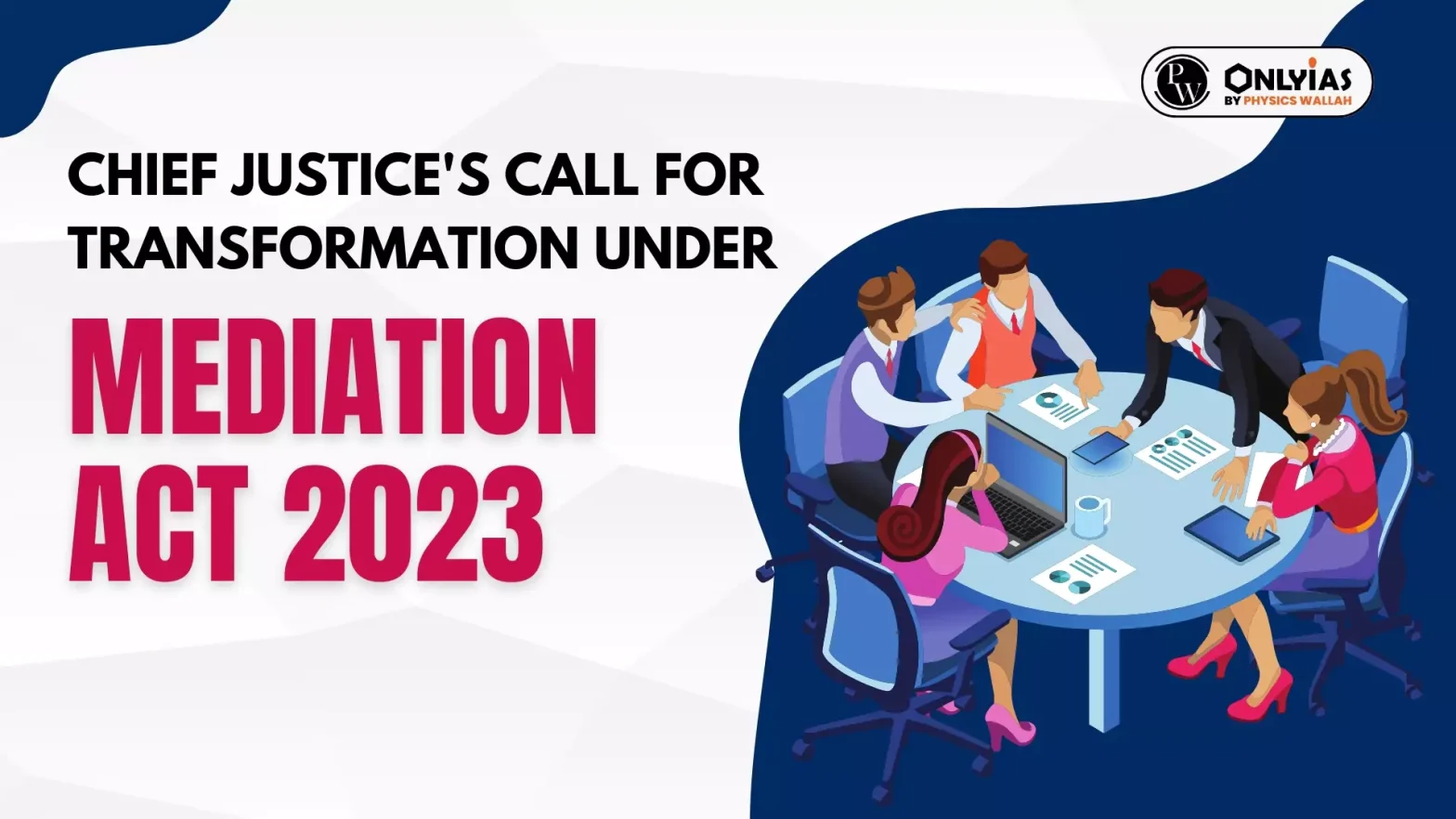Context
Chief Justice of India, Justice DY Chandrachud, emphasizes the importance of mediation over litigation, aligning with the Mediation Act 2023, which aims to revolutionize alternative dispute resolution in India.
Expanding Scope and Role of Mediation Act 2023
The Mediation Act 2023, formalizes mediation and introduces various forms, including pre-litigation and court-annexed mediation, to facilitate amicable settlements through neutral mediators.
Enroll now for UPSC Online Course
- Recognition and Evolution: Former Supreme Court judge, Justice S.K. Kaul, acknowledges the evolving acceptance of mediation within the legal community, highlighting its synergistic role alongside established legal procedures such as the Insolvency and Bankruptcy Code (“IBC”),
- Philosophical Shift: Mediation, echoing Mahatma Gandhi’s ethos, emphasizes reconciliation and healing, steering away from adversarial confrontation towards dialogue and understanding, thus fostering a democratic space for conflict resolution.
Practical Challenges in Implementing the Mediation Act 2023
- Experience Requirement for Mediators: Aspiring mediators must have 15 years of professional experience before qualifying to practice.
- This requirement might be too stringent and could limit the pool of potential mediators, hindering the growth of mediation as a viable dispute-resolution method.
- Disconnect in Legal Education: The current legal education and practice emphasize advocacy, which contrasts sharply with the neutrality required in mediation.
- This creates a disconnect as legal professionals need to unlearn and relearn skills when transitioning between roles, making the process inefficient.
Way Forward
- Integrated Learning Approach: To bridge the gap between advocacy and mediation, there should be continuous, integrated learning.
- Legal professionals should be trained to switch roles seamlessly, maintaining and enhancing their skills in both areas throughout their careers.
- Innovative Training Methods: Co-mediation and shadow mediation should be incorporated under the Mediation Act 2023 for young lawyers.
- Co-mediation pairs novice mediators with experienced counterparts in actual mediation sessions, facilitating a dynamic learning environment where skills can be actively observed and practiced.
- Shadow mediation offers novices a chance to observe these sessions without direct involvement, providing them with insights into the subtleties of the mediation process and various conflict resolution strategies.
- Structured Mediation Training in Law Schools: Embedding mediation training within the law school curriculum can ignite early interest and equip students with essential dispute resolution skills.
- Amendments to the Experience Requirement: Revising the experience requirement to allow younger professionals to become mediators sooner could expand the pool of qualified mediators and accelerate the adoption of mediation practices.
Enroll now for UPSC Online Classes
Conclusion
Raising awareness and advocating for the advantages of mediation among both the general public and within the legal community has the potential to alter perceptions, moving away from litigation and towards the embrace of amicable dispute resolution.
Also Read: Settle Disputes by Mediation – IBBI Expert Committee Recommends
![]() 14 May 2024
14 May 2024

